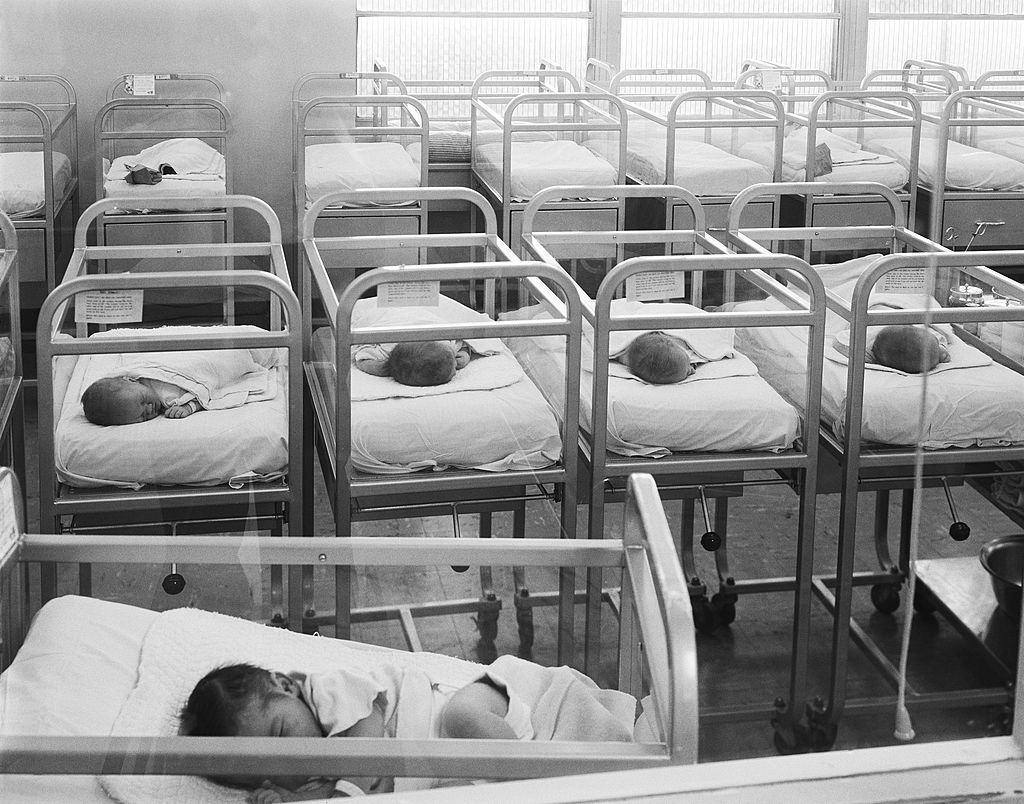Sometime this century, or early in the next, women will no longer have to give birth. Already conception can take place within a test tube, and incubators have pushed back the earliest time when prematurely born infants can survive outside of the womb. We can edit genes and modify animal organs for successful implantation into human beings. We can grow meat from cell cultures, and we can clone vertebrates.
For all the talk one hears about a dearth of innovation, the pace of biotechnological innovation has only accelerated since the end of the twentieth century. It will not soon stop.
Artificial wombs are a feature of science fiction dating back to Huxley’s Brave New World and no doubt sometime earlier. The technology doesn’t exist yet, but there is already a market demand for gestation outside a conceiving mother’s womb, a demand that is met by surrogacy.
But surrogacy creates legal and emotional complications. What if the birth mother doesn’t want to give up the baby? What if a girl who knows full well that neither Pete Buttigieg nor his husband gave birth to her wants to develop a relationship with the woman who did?
Many Americans, including most conservatives, view hormonal contraception — the pill — as a revolutionary development. It gets credited, or blamed, for every subsequent turn of sexual politics. By separating sex from reproduction, the story goes, the pill dissolved the traditional family, transformed the workforce, and lighted the way to gay rights and transgender ideology.
I’ve never entirely bought into the argument. The sexual revolution was already underway among intellectuals in the first decades of the twentieth century. The pill may have been an accelerant, but it was not the spark of the revolution. It was an effect, not the first cause.
But what has been said rightly or wrongly about the pill will apply a hundred times over, and entirely correctly, to the advent of artificial gestation.
At first, only the rich might be able to afford it. Insurance companies might begin by prioritizing the needs of women who, through no choice of their own, are incapable of carrying a fetus to term. Yet insurance companies that celebrate Pride Month are hardly going to deny gay men the right to rent a womb, too.
Before long, it won’t seem so weird, and millions of women busy pursuing careers will see the advantage in having something else bear their children. Hippies and religious people will want to keep their childbearing natural. Will most women, when they can enjoy motherhood without the pains and risks of childbirth or the inconvenience of a nine-month burden?
The sentimental attraction of nature will again confront the calculus of convenience. Not every woman will do what is easiest, but more and more will. When the technology is mature enough, it may even offer measurable advantages to the child’s safety and health. The logic of adopting this technology will not be entirely selfish or hedonic.
Commentators and policy wonks who have spent the last few years discussing declining birth rates will have a new topic for conversation. The limits on a nation’s population growth will no longer be set by whether parents are having children naturally. Instead, the limit will come from how many people are available to care for the newborns and bring up the children. Liberals already talk about how the American economy is set to see growth among the “caring professions.” For now, that means caring for the aged. Tomorrow it will mean caring for the young.
At first, parents will still provide that care. But “parents” is already a word that might denote many combinations of persons of different or identical “genders.” Its meaning is unlikely to narrow as the biological tie between offspring and genetic donors grows more distant. And besides, don’t the poor and the lonely have a human right to reproduce?
In Brave New World the society of the future is both socialist and capitalist, much like our own healthcare system. If that system persists into the real world’s new era, employers will want some say on what the insurance they pay for covers.
Yet there is obviously an overwhelming public interest in the size and makeup of the population. Presently liberals use immigration and education to design the population they want — the one they say the nation needs. Social conservatives, too, think of children as a public resource, an axiom that undergirds many “pro-family” policy arguments.
In a world where a parent can be any person or group of people, and where caring professionals are more essential than conceiving couples, what will be left to define the sexes? They will have different organs and genes, but even the most uniquely feminine role of all, that of mother, will no longer be necessary.
And if private individuals — as couples or alone, or perhaps as “polycules” — are initially responsible for commissioning new children in the first place, as in the days of sexual reproduction, sooner or later the public interest and competitive commercial needs will want a say over who gets conceived, too. Certainly, bad genetic matches will be discouraged for the same reasons that one subset of such matches, incestuous ones, are discouraged now.
The future is radical, and today’s discussions of demography and sexual politics will be obsolete before we know it. What has until now been known as humanity might be obsolete, too.
This article was originally published in The Spectator’s July 2022 World edition.

























